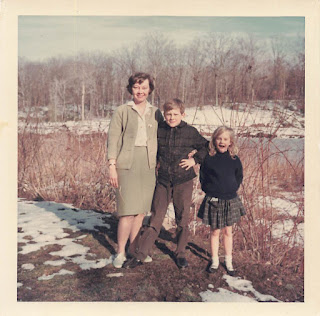March 1
Yesterday, I was reading a book that I bought already feeling favorably disposed towards. I had read an extract of this book from the introduction some years ago, and I felt what it said was both smart and well informed, with important insights. The book was about (or, supposedly about) inner practices in Buddhism.
The author went on to say intelligent things and make what appeared to be pithy observations, and obviously had an enormous amount of Buddhist education, lore, and experience to draw on. Everything about the book had only the best of intentions.
There was, however, a caveat.
I realized fairly early on that the author did not actually understand inner practice. This is a very subtle thing, because it's possible to be encyclopedic in your knowledge of inner practice from the point of view of study, information, "facts," and apparent experience, and still not understand inner practice.
True inner practice leads to very specific places that involve very specific energies and states; and many of those energies and states aren't the ones described in literature, precisely because of this problem. It's not just that the results of inner practice can't conceptually be put into words, but that they literally cannot be put into words. In the end, the practice deepens to a point where the awareness of it itself can be seen to be separated from the descriptions and the words.
Even the awareness does not have words.
The difficulty, I believe, arises because both the inner world and the outer world manifest within us, that is, within the range and limits of our awareness and our psyche. It takes a great deal of discrimination to see both of these worlds arising within us and understand which thoughts, emotions, and sensations are attached to the outer world and which ones belong to the inner one.
I suppose it’s no surprise that this becomes an issue, because as we are we have almost no contact with the real subtleties and awareness of an active, conscious, and conscience-saturated inner world. It’s possible to configure the inner attachment to the outer in such a way that it appears to be this thing, when in fact it isn't this thing at all. Many contradictions arise here; and many indeed are those who appear to have grasped some inner characteristic when in fact nothing of the kind has happened.
To the author’s credit, they realize this and talk about the dilemma. They even acknowledge their own struggle with this problem, which I think is a good thing and shows a degree of honorable intention.
Yet what I'm searching for is those who write from a legitimate understanding of what is inner.
Identification with the outer world is intense in human beings. The inner psyche becomes the outer world and what happens in it; and when in this condition, the game is already over, because an impenetrable barrier is formed between new information, understanding, and what is already there. Early on in my "enlightenment" experience — I always put that in quotation marks, because enlightenment has its stages and is always a very relative thing (to realize you're a fool, for example, is already enlightenment, compared to not knowing it)— I saw this feature of impenetrability and called it the iron gate, because it’s like a medieval portcullis that slams down to keep everything I don't like out of me. Because we like, more than anything else, ourselves, and because that, in our inner dialogue, is the devil who always tries to configure everything around its own axis, it engenders a world of selfishness that satisfies itself exclusively with the outer world and what is in it. Only the awakening forces of organic sensation – which are physical, but at a higher level than this physical body in its ordinary state —and conscience, which is the evolutionary consequence of emotion when it reaches a rate of vibration that crosses over into feeling – can provide us with the inner tools of the psyche to begin to know the difference.
I realize that's a very complicated sentence. The point is that unless sensation and feeling awaken, we’re invariably identified. A higher sensation, an organic sensation which becomes more permanent, and the feeling of conscience are the only parts of the psyche that can successfully separate from identification. This isn't just a technical matter; the life of the soul depends on it. Without these faculties, the soul can’t breathe; and although souls are able to hold their breath for extraordinarily long periods of time, if they’re deprived for long enough they ultimately die.
Then you get people who don't care about anyone but themselves and undertake operations that can even lead to the deaths of thousands or millions of other innocent souls around them in order to gratify their own poisonous desires. These creatures — they are no longer human beings, because a soul is what defines a human being, and they have murdered theirs — live exclusively in a delusional outer world of their own making which they have created inside themselves. When Christ said that the kingdom of heaven is within us, he did not feel it necessary to mention the obvious corollary, that the kingdom of hell is also within us. When we rely on the outer world to build the kingdom of our psyche, we're always building on the border of hell—and hell always wants to invade. Nothing more need to be said on that point.
We all stand at risk of becoming murderers of our own soul; and when I say murderer, I mean murder in the first degree, because there is a part of us that wants to do this intentionally in order to satisfy our own desire. The killer in us rarely sleeps. It is a diseased thing dressed in finery. One of the points of self-remembering is to see this clearly.
Hoping that you find yourself in good relationship today,
warmly,
Lee
Lee van Laer is a Senior Editor at Parabola Magazine.










